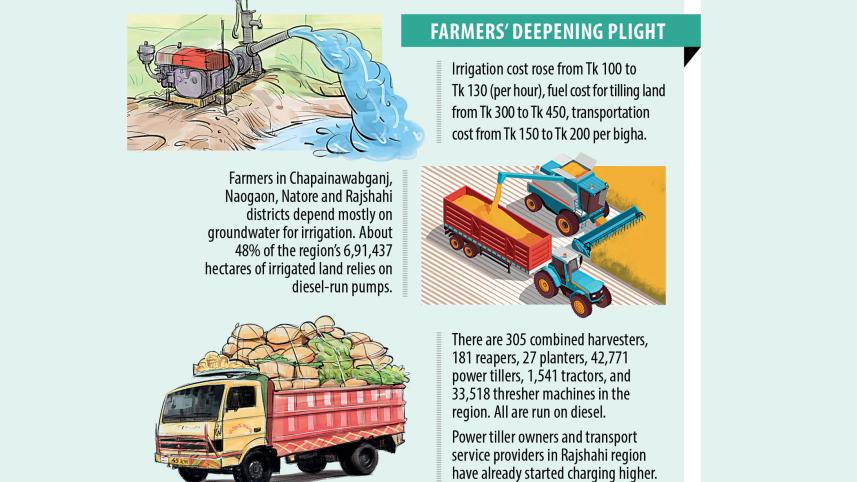Reduce diesel price for the farmers

According to a report by this daily on November 11, due to the recent hike in diesel price—which has gone up from Tk 65 to Tk 80 per litre—the production cost in the agriculture sector has already increased by at least 30 percent in the northern region of Bangladesh. Reportedly, this hike will not only impact the ongoing harvest of Aman, the production of winter vegetables and Boro paddy will also be affected, since farmers mostly depend on diesel-run machines to cultivate, irrigate, and harvest the crops.
Over the years, the number of the low-lift pumps, shallow tube-wells and semi-deep tube-wells—used to irrigate the cropland—have increased significantly in the country, and all of these are run by diesel. According to an estimate by the Department of Agricultural Extension (DAE), 48.5 percent of the region's 691,437 hectares of land, which need irrigation, currently rely on diesel-run pumps. Moreover, the use of combined harvesters, reapers, planters, power tillers, tractors and threshers, which run on diesel, have also increased significantly in the region.
This price hike will have an impact on the transportation and fertiliser costs. According to the farmers, the transport service providers have already increased their fares by Tk 200 for transporting paddy of every bigha of land, while the pump owners have increased the irrigation cost by Tk 30 for every hour of irrigation. If things go on like this, the production cost of Boro crop, which makes up more than half of the country's total rice production, will increase by about 15 percent—and many farmers have already decided not to cultivate Boro this season if the price of diesel does not come down.
Under these circumstances, in order to save our farmers from incurring losses and to protect them from the burden of additional production cost, the government should reconsider its decision and reduce the price of diesel. It should also consider giving subsidies on fuel prices and other agricultural services to farmers, so that they can not only bear the production cost, but also earn enough to live a decent life.



 For all latest news, follow The Daily Star's Google News channel.
For all latest news, follow The Daily Star's Google News channel.
Comments